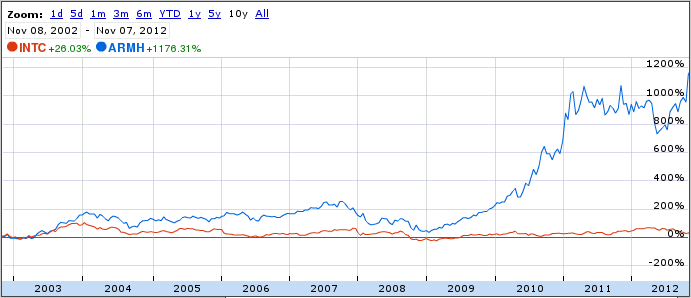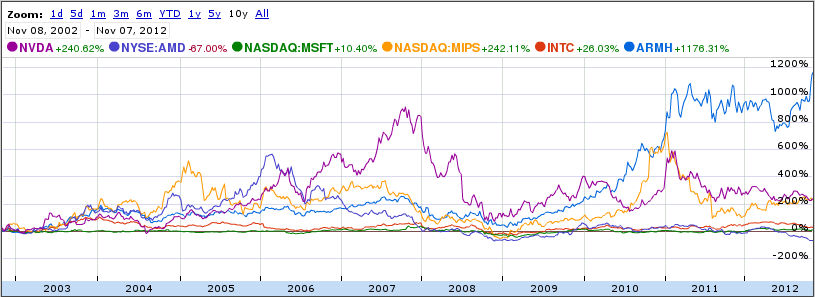Jonttu
Still Fresh
- Joined
- Mar 22, 2008
- Messages
- 94
I personally wouldn't mind an x86 Pandora...in a few years. In a few years I have a feeling that Intel will be on top perf/cons. wise. Honestly they are heavily in the lead in nm chomping with their dyes. With the Motorola Razr I, they made an incredible leap in competing with arm equivalents perf/consumption wise in a ridiculously small amount of time. I mean, what can you acclaim that to? Is it luck? Or is it just because Intel just happens have shit tons of engineers and money to develop towards the platform. I would scoff at this if they simply hired ex-rival engineers (similar to that which Apple did with the A6) and would just be stuck at the intermediary gap of just catching up, but Intel hasn't hired any new micro architecture engineers. They haven't been heavily focusing on the ultra-mobile platform. Medfield, when it was introduced performed better than arm equivalents at the time. Yeah it was poor in battery life and Intel being the cockers that they are waged people would prefer power to endurance. They were loosing ground space after netbooks and umpc's started to flop off the market ( :,( ) and started focusing on ultrabooks (  ) good move. My point is, now that the focus is on the right thing, Intels SoC are going to start intimidating competitors. I might sound like an x86 loyalist, but in all honesty it's just a logical deduction, and the evidence is quite astounding. But yeah sorry for the bump, just had to put that out there.
) good move. My point is, now that the focus is on the right thing, Intels SoC are going to start intimidating competitors. I might sound like an x86 loyalist, but in all honesty it's just a logical deduction, and the evidence is quite astounding. But yeah sorry for the bump, just had to put that out there.



